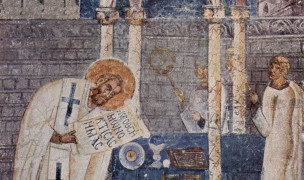 8 Terms
8 TermsHome > Industry/Domain > Biology; Medical > Human genome
Human genome
The human genome consists of 23 chromosome and the small mitochondrial DNA. 22 of the 23 chromosomes are autosomal chromosome pairs and the last one being a gender-determining pair. In total, the human genome contains the sequences of the 3 billion chemical base pairs that make up human DNA and approximately 20,000-25,000 genes. By understanding human genome, scientists are able to develop new medical applications that can significantly advance the state of health care.
Contributors in Human genome
Human genome
gene mapping
Medical; Human genome
1) Any method used for determining the location of and relative distances between genes on a chromosome. 2) Assignment of a locus to a specific chromosome or determining the sequence of genes and ...
genotyping
Medical; Human genome
Testing that reveals the specific alleles inherited by an individual; particularly useful for situations in which more than one genotypic combination can produce the same clinical presentation, as in ...
free radicals
Medical; Human genome
1) Chemicals whose molecular or ionic structure includes an unpaired ("free") electron, usually conferring high reactivity; in biological systems, most free radicals contain oxygen. 2) Highly ...
gastrinoma
Medical; Human genome
1) A neoplasm that often involves blood vessels, usually occurs in the pancreas or the wall of the duodenum, and produces excessive amounts of gastrin which stimulates gastric-acid secretion and ...
gene pool
Medical; Human genome
1) A gene pool is the total genetic diversity found within a population or a species. A large gene pool has extensive genetic diversity and is better able to withstand the challenges posed by ...
genome
Medical; Human genome
The genome is the entire set of genetic instructions found in a cell. In humans, the genome consists of 23 pairs of chromosomes, found in the nucleus, as well as a small chromosome found in the ...


